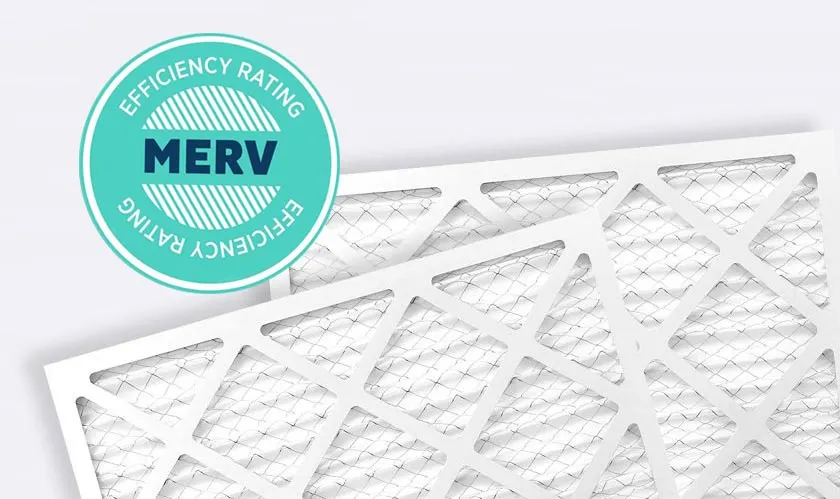Business others mERV Rating Breakdown and Why Is It Important When Buying Furnace Filters?
Others

CIO Bulletin
2023-02-21
Furnace filters protect the air in your home from dust, pollen, and other particles that can make their way into the air. But not all furnace filters are created equal—some offer better protection than others. One of the best ways to determine how effective a filter is at trapping airborne particles is by looking at its MERV rating. Let's find out MERV ratings and why you should pay attention to them when buying new carrier furnace filters for your home.
What Does MERV Stand For?
MERV stands for Minimum Efficiency Reporting Value. It's a scale used to rate furnace filters' effectiveness in trapping airborne particles such as dust, pollen, smoke, bacteria, and mold spores. The higher the number on the MERV scale, the more effective it is at filtering out these particles from your air.
MERV 6-8
Filters with a MERV rating of 6-8 are considered basic filters and will adequately filter out most larger particles, like dust mites and pet dander. They're typically used in residential homes but may not be sufficient if someone in your home suffers from allergies or asthma.
MERV 8-10
Filters with a MERV rating of 8-10 are considered medium efficiency filters that are good for removing smaller particles such as smoke and smog from the air. These filters are often used in homes where someone has allergies or asthma, but they can also be used to help reduce odors in homes with pets or smokers.
MERV 11-13
Filters with a MERV rating of 11-13 are considered high-efficiency filters that can trap even finer particles, such as mold spores and bacteria, from the air. These filters are often found in hospitals or other healthcare settings where there is a need for clean air, but they can also be beneficial for people who suffer from severe allergies or asthma.
MERV 14 & Higher
Filters with a MERV rating of 14 or higher provide maximum efficiency and will trap even ultrafine particles, such as viruses, from the air. These filters are rarely found in residential homes but can be beneficial if you have severe allergies or respiratory issues like COPD or emphysema.
Should You Buy Filters With the Highest MERV Ratings?
The type of filter you use will play a vital role in maintaining healthy air quality in your home. Many HVAC systems come with standard filters with lower MERV ratings, but it is important to consider buying filters with higher MERV ratings if possible. Doing this can greatly reduce the amount of harmful airborne particles dispersed throughout your home, including fine dust, pet dander, and other allergy–causing agents.
Although these filters may cost more upfront, they often last longer and save money in the long run due to less frequent replacements. Additionally, those suffering from allergies or asthma may find greater relief investing in higher-rated filters versus cheaper alternatives.
Understanding what each type of filter offers can help you decide which type best suits your particular needs. While basic furnace filters may be sufficient for some households, those with allergies or respiratory issues may benefit from investing in higher efficiency models to ensure their indoor air quality remains healthy and clean all year round.
Banking-and-finance
Artificial-intelligence
Travel-and-hospitality
Management-consulting
Banking-and-finance
Banking-and-finance
Food-and-beverage
Travel-and-hospitality
Food-and-beverage